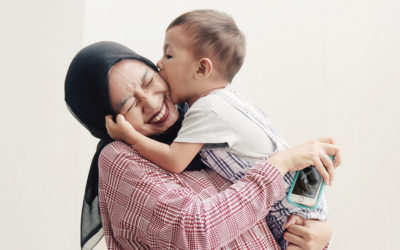Regression can be a scary word to hear. It invokes feelings of negativity and failure, but what does it really mean, from a behavioral standpoint, and how does it relate to Autism? In this post, we’ll discuss what regression is and its relation to children on the autism spectrum.
Regression Defined
An albeit antiquated notion, many see autism as either occurring from birth or arriving later, most likely during a child’s early life. This “late arrival” would be indicated by behavioral or developmental regression. Regression, quite literally being the opposite of progression, indicates a negative and backwards movement.
As it relates to behavior and development, regression is what would describe, for example, a child who has learned how to socialize and verbalize and either gradually or all at once, “forgets” or no longer demonstrates the ability to do what they previously learned.
The Regressive Dilemma
For many children with autism, regression mostly impacts their communication and social skills. Studies published by the CDC on autism prevalence say that as many as 1 in 5 children with autism are marked with signs of regression. Similar research also shows that regression can occur beyond the toddler years and well into childhood.
Regression is especially challenging because it can mean severe behavioral or developmental issues that can cause children to fall behind in school or their overall development. If a child shows signs of regressing, it can be most helpful to ensure they are enrolled in proper behavioral therapy such as Applied Behavior Analysis (ABA) therapy, and get plenty of additional support in school.
What to Do When You Notice Regression
For many families, their child displaying signs of regression can be what gets them to investigate if their child is on the autism spectrum. While regression isn’t exclusively a symptom of autism, its commonality amongst those on the spectrum can give behavioral specialists and clinicians the lead they need to diagnose your child with Autism Spectrum Disorder (ASD) or another condition on the spectrum.
If you notice signs of regression in your child:
- Seek professional help from your doctor
- Ensure your child is receiving the proper support at school and in their daily lives
- If your child is diagnosed with autism, early intervention and ABA therapy is paramount for reversal and continued development.
If you’re not sure about what your child is displaying or experiencing, always default to the medical professionals in charge of their care. For more ABA and autism related news and tips visit our blog and follow us on Facebook, Instagram, and Twitter! If you have questions regarding ABA therapy services or you’re interested in visiting one of our locations, don’t hesitate to reach out to us on our contact page. We’re always here to answer your questions and support your family’s needs as best as we can.



